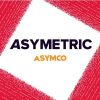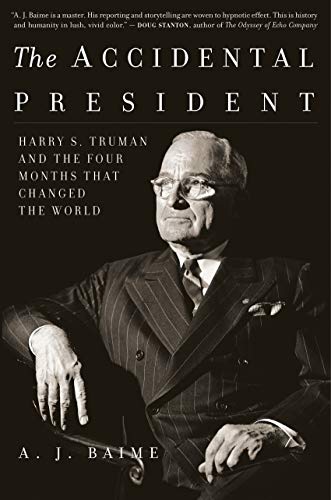10 Best-Selling US 20th Century History Books Millions Love
Explore US 20th Century History books recommended by Yale’s Gregg Gonsalves, mobility analyst Horace Dediu, and CNN's Chris Cillizza—trusted voices guiding you to impactful reads.





When millions of readers and top experts agree on a book, it's worth paying attention. US 20th Century History is a dynamic field that continues to shape our understanding of modern America, from world wars to political transformations. These books have not only captivated wide audiences but also earned respect from thought leaders who study the era’s complexities.
Gregg Gonsalves, an assistant professor at Yale deeply engaged in social activism, praises works like "The Best and the Brightest" for revealing the human errors behind policy disasters like Vietnam. Meanwhile, Horace Dediu, a recognized mobility analyst, highlights books such as "Freedom's Forge" for their insights into America’s industrial power during World War II. Their endorsements reflect how these narratives connect scholarly depth with broad appeal.
While these popular books provide proven frameworks, readers seeking content tailored to their specific US 20th Century History needs might consider creating a personalized US 20th Century History book that combines these validated approaches. This way, you get expert-approved content fine-tuned to your interests and background.
Recommended by Gregg Gonsalves
Assistant Professor at Yale, AIDS activist
“In 1972, Halberstam wrote a book about the origins of the Vietnam War and the "best and the brightest," JFK's whiz kids who crafted a foreign policy that would lead to disaster.” (from X)
by David Halberstam, John McCain··You?
by David Halberstam, John McCain··You?
David Halberstam, a Pulitzer Prize-winning journalist known for his incisive chronicles of American life, teamed with Senator John McCain to examine one of the most contentious episodes in US history: the Vietnam War. This book dives deeply into the decisions and personalities behind America’s involvement, revealing how policy missteps and overconfidence by influential figures led to a prolonged conflict. You’ll gain insight into the complex interplay of politics, military strategy, and flawed human judgment, illustrated through vivid portraits of key decision-makers. If you’re drawn to understanding the underlying causes of historical failures and their lasting impact, this detailed narrative offers a thorough perspective.
What sets this biography apart is Jean Edward Smith’s deep dive into both the public and private sides of Franklin Delano Roosevelt. Drawing from Smith’s extensive experience as a historian and biographer, you gain insight into how FDR’s battles with polio shaped his resilience and leadership during the Great Depression and World War II. The book doesn’t shy away from tough topics like Japanese-American internment or Roosevelt’s mixed record on the Holocaust, offering a nuanced portrait rather than a hagiography. If you want to understand the complexities behind one of America’s most influential presidents, this book provides a richly detailed narrative that balances his triumphs and failures.
by TailoredRead AI·
This tailored book delves into the intricate industrial mobilization that underpinned the United States' success in World War II, focusing on the dynamic intersection of manufacturing innovation, government coordination, and business leadership. It examines how wartime production was ramped up to unprecedented levels, revealing the critical factors that fueled victory. By creating a personalized exploration, the book matches your background and interests, allowing you to engage deeply with the pivotal strategies and economic shifts that shaped the era. It covers the evolution of industrial capacity, workforce changes, and the impact of technology, providing a focused lens on how industry transformed wartime America and contributed to Allied success.
David McCullough's decades of historical research and narrative skill come alive in this detailed biography of Harry S. Truman, revealing the man behind pivotal 20th century decisions. You learn about Truman’s rise from Missouri’s heartland politics to the presidency during critical moments like the atomic bombings and the Korean War, with chapters offering new archival insights and personal interviews. The book is suited for anyone wanting a deeper understanding of American leadership amid global upheaval, emphasizing Truman's complexity beyond the usual headlines. You’ll find vivid portrayals of his relationships with figures like Churchill and Stalin, making history both intimate and immediate.
Recommended by The Philadelphia Inquirer
“Stunning.... The best single-volume history of the war.... Assembled from a multitude of overlapping voices, American and Vietnamese, [The Vietnam War] tells the long story from every conceivable angle, from veterans and protesters to draft-dodgers and prisoners of war to politicians and grunts.”
by Geoffrey C. Ward, Ken Burns··You?
by Geoffrey C. Ward, Ken Burns··You?
Geoffrey C. Ward and Ken Burns developed this vivid history after extensive interviews on all sides of the Vietnam War, presenting a nuanced narrative that delves into personal experiences and political complexities. You gain detailed insights into the war's origins, combat realities, and its enduring impact on American society, enriched by voices from soldiers, officials, protestors, and families. Chapters explore everything from battlefield chaos to antiwar movements, offering a multi-dimensional understanding rather than a one-sided account. This book suits you if you want a textured grasp of the Vietnam War’s legacy beyond standard military history or political analysis.
Recommended by Horace Dediu
Micromobility expert and analyst
“Great book.” (from X)
Arthur Herman's decades of historical research and narrative skill led to this detailed examination of American industry’s role in World War II. You’ll uncover how business leaders like William Knudsen and Henry Kaiser transformed factories into war production powerhouses, shifting entire industries practically overnight. The book offers vivid portraits of corporate collaboration, government mobilization, and industrial innovation that shaped the Allied victory. If you’re fascinated by the mechanics behind wartime production or the economic forces that propelled the United States into superpower status, this book gives you a front-row seat to those pivotal years.
by TailoredRead AI·
This tailored book explores the leadership strategies of US 20th century presidents, focusing on decision-making during turbulent historical moments. It examines pivotal choices, challenges, and political dynamics that shaped America’s path, aligning closely with your interests and background. By tailoring content to your specific goals, it reveals how presidential leadership adapted to crises like wars, economic upheavals, and social change. The book offers a personalized journey through complex events, providing insights that resonate with your unique perspective on history. This approach deepens understanding by connecting well-known examples to the themes you want to explore, making the learning experience both engaging and relevant.
Jon Meacham, a Pulitzer Prize-winning historian, draws on an extraordinary trove of personal diaries and family access to explore the complexities of George H.W. Bush’s presidency and character. You’ll gain insight into the decisions behind pivotal moments like the fall of the Berlin Wall and the Gulf War, along with a nuanced understanding of the shifting political landscape of late 20th-century America. The book offers detailed portraits of leadership in times of transition, blending personal reflection with national history. It's suited for anyone seeking to understand the human side of political power and the subtle forces shaping modern American conservatism.
by Oliver Stone, Peter Kuznick·You?
by Oliver Stone, Peter Kuznick·You?
What started as a collaboration between filmmaker Oliver Stone and historian Peter Kuznick evolved into a critical examination of American history that challenges the usual narratives you might expect. This book digs into the less-discussed actions and policies of the U.S. throughout the 20th century, using newly available archives and declassified documents to question accepted ideas like American exceptionalism. You'll explore topics such as the controversial use of atomic bombs, the origins and dynamics of the Cold War, and U.S. involvement with authoritarian regimes. If you're ready to reconsider familiar history and understand the complexities behind U.S. foreign and domestic policies, this book offers a detailed and thought-provoking perspective.
by A. J. Baime··You?
A.J. Baime’s extensive experience as a bestselling author and journalist focusing on pivotal moments in American history shines through in this detailed portrait of Harry S. Truman’s early presidency. You gain a vivid understanding of the critical decisions Truman faced in just four months—from the founding of the United Nations to the atomic bombings and the end of World War II. Baime’s narrative skillfully captures both the high stakes and the human side of Truman’s rise, making it clear how an ordinary man shaped global history. This book suits anyone interested in presidential history or the complex geopolitical shifts of mid-20th century America, offering both context and compelling storytelling without exaggeration.
by Michael J. Hogan·You?
Michael J. Hogan, a seasoned historian at Ohio State University and editor of Diplomatic History, explores how the Marshall Plan was not merely economic aid but a strategic blueprint to reshape Western Europe into a market integrated along American lines. You’ll gain insight into the political and economic ambitions underpinning U.S. foreign policy from the Progressive Era through the postwar period, especially the drive for a mixed capitalist economy abroad. The book’s detailed chapters dissect the interaction between American and British officials, revealing the complexities behind reconstruction efforts from 1947 to 1952. If you want to understand the foundations of modern Western economic order and the interplay of diplomacy and economics, this book will deepen your perspective.
Recommended by Chris Cillizza
CNN political analyst and YouTube host
“A great Q and A on the newest Trump book (out today)” (from X)
by Peter Baker, Susan Glasser··You?
by Peter Baker, Susan Glasser··You?
What happens when two seasoned political journalists turn their attention to the Trump presidency? Peter Baker and Susan Glasser draw on their deep experience covering Washington and Kremlin affairs to deliver a detailed chronicle of the tumultuous years from 2017 to 2021. You gain insider access to pivotal moments, like close calls with nuclear conflict and behind-the-scenes cabinet dynamics, revealing not just events but the moral dilemmas faced by those around Trump. This book suits you if you seek a nuanced understanding of recent American political history framed by firsthand accounts and exclusive interviews.
Popular History Methods, Personalized for You ✨
Get proven US 20th Century History insights tailored to your unique interests and goals.
Trusted by history enthusiasts and experts alike
Conclusion
This collection of 10 best-selling US 20th Century History books reveals a few clear themes: detailed presidential biographies, nuanced war histories, and critical examinations of America’s political and economic strategies. Each book offers a proven lens through which to understand pivotal events and figures.
If you prefer proven methods grounded in archival research, start with biographies like "FDR" and "Truman." For validated approaches to complex conflicts, combine "The Best and the Brightest" with "The Vietnam War." Economic history enthusiasts will find "Freedom's Forge" and "The Marshall Plan" particularly illuminating.
Alternatively, you can create a personalized US 20th Century History book to combine proven methods with your unique needs. These widely-adopted approaches have helped many readers succeed in grasping the intricate tapestry of America's transformative century.
Frequently Asked Questions
I'm overwhelmed by choice – which book should I start with?
Start with "The Best and the Brightest" for a compelling narrative on Vietnam War decisions or "FDR" to understand leadership during the Great Depression and WWII. These offer solid foundations and expert acclaim, easing you into the era’s key themes.
Are these books too advanced for someone new to US 20th Century History?
Not at all. Many, like "The Vietnam War" and "Truman," balance detail with accessible storytelling. They’re suited for newcomers eager to understand complex events without requiring prior in-depth knowledge.
Do I really need to read all of these, or can I just pick one?
You can pick based on your interests—biographies, war histories, or economic policies. Each book stands alone, but exploring multiple offers a richer, more nuanced grasp of the century’s dynamics.
What's the best order to read these books?
Consider starting with presidential biographies like "FDR" or "Truman" for context, then move to thematic books such as "Freedom's Forge" on industrial mobilization and "The Vietnam War" for conflict insights, building a layered understanding.
Are there any books here that contradict each other?
Some perspectives differ, especially in "The Untold History of the United States," which challenges traditional narratives found in others. This contrast offers a valuable opportunity to engage critically with multiple viewpoints.
Can personalized books complement these expert picks?
Yes! While these books provide authoritative insights, personalized US 20th Century History books tailor content to your specific interests and background, enhancing how you engage with expert knowledge. Learn more here.
📚 Love this book list?
Help fellow book lovers discover great books, share this curated list with others!
Related Articles You May Like
Explore more curated book recommendations









